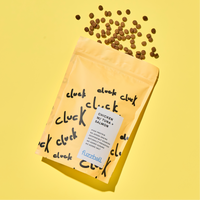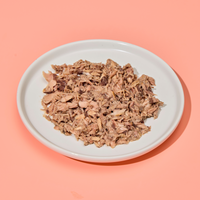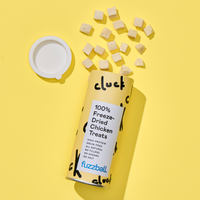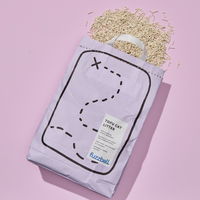Signs Your British Shorthair Isn’t Getting the Right Nutrition
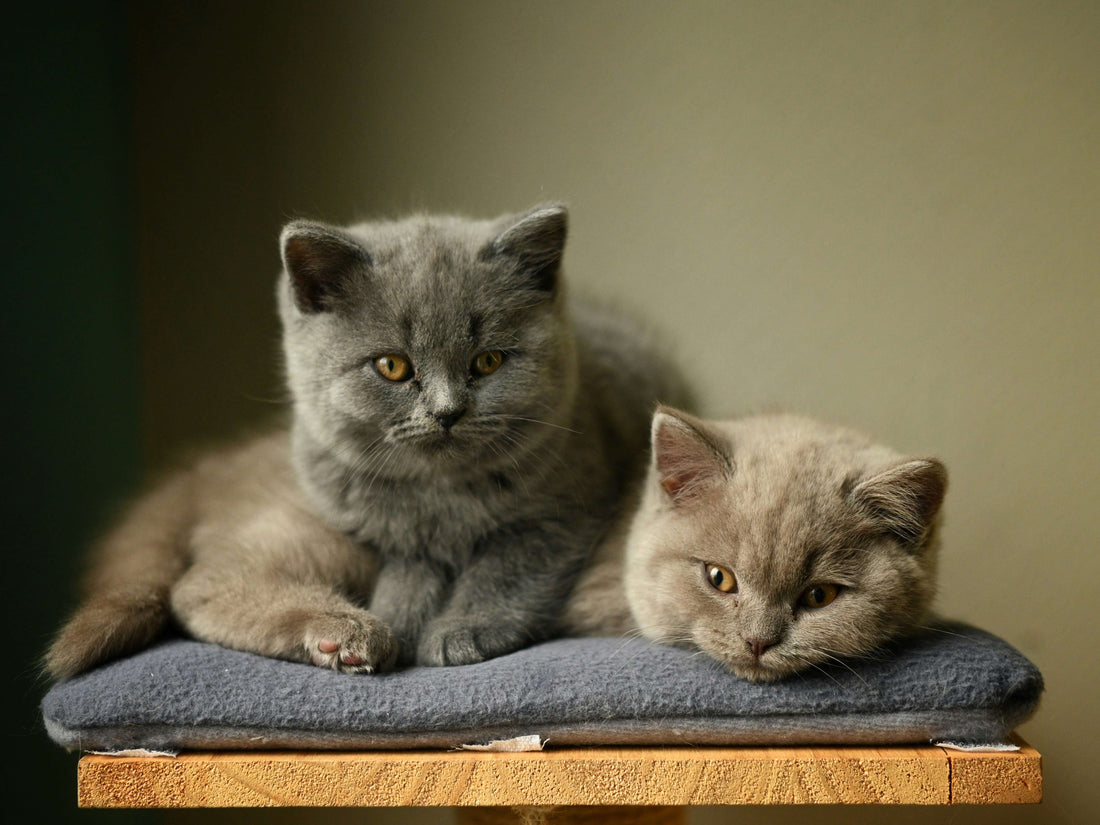
British Shorthair cats are known for their chunky build and easy-going nature. Since most live indoors with fairly relaxed lifestyles, the right nutrition is key to avoiding health issues linked to overeating or a poor diet. You don’t need to switch foods as they grow, but it’s important to understand how their needs shift over time. Kittens burn through far more energy than adults. With a high-protein food, your cat gets complete nutrition at every stage of life; all you need to do is adjust portion sizes and feeding routines as they mature.
Why nutrition matters for British Shorthair cats.
British Shorthairs have a naturally slower metabolism than many other breeds, and when you combine that with their relaxed lifestyle, it is easy for them to gain extra weight if their diet is not carefully managed. Obesity in British Shorthairs is not just about how they look. Carrying excess weight can increase the risk of joint problems, diabetes, and heart issues, all of which can affect their quality of life and long-term health.
High-quality nutrition goes way beyond just keeping your cat at a healthy weight. A protein-rich diet with all the right nutrients helps build strong muscles, keeps their immune system fighting fit, and supports overall health. With the right balance of vitamins and minerals, British Shorthairs are better equipped to fight off illness, maintain good energy levels and enjoy a longer and healthier life.

What Are the Components Of a Nutritional Diet For British Shorthair Cats?
For British Shorthairs, a nutritional diet should focus on supporting their muscular build, slower metabolism, and tendency toward weight gain.
Protein
Protein is the single most important part of a British Shorthair’s diet. As obligate carnivores, cats rely on protein from animal sources to fuel their bodies and support vital functions. For British Shorthairs in particular, protein is essential for maintaining their strong, muscular build while preventing excess fat gain. It provides the amino acids needed for healthy growth in kittens, supports lean muscle in adults, and helps seniors stay active and mobile. A protein-rich diet also boosts the immune system, keeps their coats shiny, and supplies steady energy without the unnecessary calories that come from carbohydrates.
Carbohydrates and Fibre
Cats have no natural dietary requirement for carbohydrates, and British Shorthairs are especially prone to weight gain if they consume too many. High-carb fillers like wheat, corn, or rice provide quick calories without much nutritional benefit, which can lead to obesity and other health-related issues. Limiting carbohydrates in their diet helps keep their weight under control while ensuring their energy comes from protein and fat, which their bodies are designed to use.
Vitamins and Minerals
Vitamins and minerals are essential for strong bones, a healthy immune system, and proper organ function. For British Shorthairs, the right balance helps prevent deficiencies and supports long-term health. Foods such as Fuzzball are specifically formulated as a complete food, which means every meal contains the full range of vitamins and minerals your cat needs in the correct amounts. You do not need to add supplements or mix different foods. Simply adjust portion sizes as your cat grows, and you can be confident they are getting everything required for lifelong health.
How to Know If My British Shorthair Cat Isn’t Getting the Right Nutrition?
Making sure your British Shorthair is getting the right nutrition is essential for its long-term health. If their diet is lacking in any nutrients, you will start to see some warning signs both in their appearance and overall energy levels.
|
Signs of Poor Nutrition |
Why It Happens |
|
Dry or Dull Coat |
Lack of protein and required to maintain healthy skin and fur. |
|
Excessive Shedding |
Vitamin, mineral or protein deficiency. |
|
Weight Loss |
Not enough protein or calories to maintain muscle mass and energy levels. |
|
Lethargy |
Insufficient nutrients or an unbalanced diet. |

What Are the Potential Health Issues Related to Diet?
Because of their slower metabolism and easy-going lifestyle, British Shorthairs are more prone to diet-related health problems than some other breeds. Feeding the wrong type or amount of food can put them at risk of:
- Obesity - Extra weight puts strain on joints and organs, increasing the risk of arthritis, diabetes and heart disease.
- Diabetes - High-carbohydrate diets can lead to insulin resistance and long-term blood sugar issues.
- Joint problems - Carrying excess weight puts pressure on hips, knees and spine, leading to mobility challenges.
- Heart disease - Poor quality food without enough taurine or protein can impact heart health.
- Urinary tract issues - Diets lacking in moisture can increase the risk of urinary crystals and kidney problems.
- Weakened immune system - Deficiencies in essential vitamins, minerals or protein make cats more vulnerable to illness.
Tips to Maintain a Healthy Diet for Your British Shorthair Cat
Keeping your British Shorthair well-fed isn't just about choosing the right food - it's about developing good feeding habits that work for the long haul. With a few simple practices, you can ensure their diet keeps them healthy and helps prevent them from developing any weight-related health issues.
Create a Checklist of Essential Components
Make sure the food you are feeding your British Shorthair is high quality, contains high levels of protein and is nutritionally complete and balanced. And remember, cats do not require any carbohydrates in their diet.
Monitor Their Weight
Because of their slower metabolisms, British Shorthairs can quite easily gain weight. It is important to keep an eye on their body condition and look out for any weight gain around their waist or stomach.
Adjust Their Diet Based on Growth and Age
Kittens, adults and senior British Shorthairs all burn calories at different rates. You don't have to switch their food as they get older, but it is important to adjust portion sizes and feeding routines to match their life stage.
Monitor Their Activity Levels
As mostly indoor cats, British Shorthairs burn fewer calories than their outdoor cousins. Keeping them active through play and stimulation is essential, as it helps them exercise, use up energy and avoid unnecessary weight gain.
British Shorthairs are lovable cats with big personalities, but their slower metabolism means they need the right diet to stay healthy. A focus on protein, balanced nutrients, controlled portions, and regular activity helps prevent weight gain and diet-related health problems. By paying attention to their needs as they grow, you can make sure your British Shorthair enjoys a long, active and happy life.

